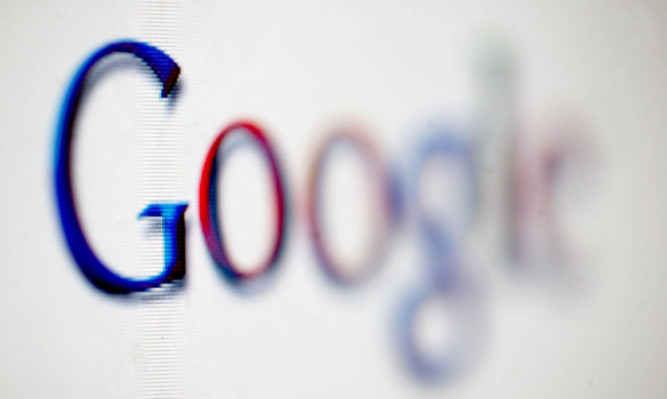A conservation group claims that Google has something in common with illicit ivory traders in China and Thailand – it says the internet search giant is helping fuel a dramatic surge in ivory demand in Asia which is killing African elephants at record levels.
The Environmental Investigation Agency, a conservation advocacy group, said in a statement today that there are some 10,000 adverts on Google Japan’s shopping site which promote the sale of ivory.
About 80% of the ads are for “hanko” – small wooden stamps widely used in Japan to affix signature seals to official documents. The rest are carvings and other small objects.
Hanko are used for everything from renting a house to opening a bank account. The stamps are legal and typically inlaid with ivory lettering.
The EIA said Japan’s hanko sales are a “major demand driver for elephant ivory (and) have contributed to the wide-scale resumption of elephant poaching across Africa”.
Google said in an emailed response to the Associated Press: “Ads for products obtained from endangered or threatened species are not allowed on Google. As soon as we detect ads that violate our advertising policies, we remove them.”
The EIA said it had written a letter to Google chief executive Larry Page on February 22 urging the company to remove the ads because they violate Google’s own policies. It said Google had not responded to the letter or taken down the advertisements.
“While elephants are being mass-slaughtered across Africa to produce ivory trinkets, it is shocking to discover that Google, with the massive resources it has at its disposal, is failing to enforce its own policies designed to help protect endangered elephants,” said Allan Thorton, the US-based president of the EIA.
Curbing the trade in so-called “blood ivory” is at the top of the agenda of the 178-nation Convention on International Trade in Endangered Species, or Cites, which is meeting in Bangkok this week to discuss how to protect the planet’s biodiversity by regulating the legal trade of flora and fauna and clamping down on smuggling.
Around 70 years ago, up to five million elephants are believed to have roamed sub-Saharan Africa. Today, just several hundred thousand are left.
Over the last few years, as Asian economies have grown and demand for ivory has risen, the slaughter of elephants has reached its worst level in more than two decades. Last year alone, some 32,000 elephants were killed in Africa, according to the Born Free Foundation, which says black-market ivory sells for around 1,300 US dollars (£865) per pound. Much of it ends up as tourist trinkets and carvings.
Cites banned the international ivory trade in 1989, but the move did not address domestic markets.
Google’s advertising policies state that Google “doesn’t allow the promotion of products obtained from endangered or threatened species”, including elephant tusks, rhino horns and products made from whales, sharks and dolphins.
Mr Thorton said the policies were laudable “but sadly these are not being enforced and that’s devastating”.
Concerned internet shoppers have alleged that ivory is being sold on other sites as well, including eBay. Some objects now offered for more than 1,000 US dollars (£665) apiece are marketed as “ox bone” or “faux ivory”.
At least one wildlife group, the UK-based International Fund for Animal Welfare (Ifaw), has said it has worked with eBay to help it enforce anti-ivory trading policies by showing it how its rules are being flouted and improving efforts to flag suspicious items.
In 2007, Ifaw alleged that eBay was “one of the main channels through which trafficking in wildlife and wildlife products are conducted online”, but it has said the shopping site clamped down after Ifaw shared research with them concerning illegal trading.
